 Nucor Steel – Nebraska, a member of the Nucor Bar Mill Group, produces special bar, cold heading and merchant bar steel products. It was one of 200 energy-intensive facilities to receive a DOE Energy Saving Assessment. (Artwork by Nucor Bar Mill Group) |
Some of the 200 industrial plants that received a DOE Energy Saving Assessment in 2006 used it as a launching pad for their own energy efficiency programs, while some, like Nucor Bar Mill's Nebraska facility, consider it one more step on a long journey.
|
Individual Assessments Now Available to More Companies More companies can become involved in free, or nearly free, industrial energy assessments. As part of the U.S. Department of Energy’s Save Energy Now program, large-and-medium-sized facilities can now participate in an energy savings assessment by joining together to reach the minimum potential energy savings threshold.Industrial plants may apply individually, or in groups of up to 10 if they consume a total of 1 trillion British thermal units or more annually. In either instance, the results of a plant’s assessment will remain confidential. Assessment areas include process heating, steam, fans, pumps and compressed air. The program’s goal is to reach large industrial energy users having the potential for significant energy savings. If a company is selected for an assessment, an Energy Saving Assessment Energy Expert will work onsite with the company to identify savings opportunities. Plant employees will help gather data, learn about software tools and perform a system analysis to minimize energy use. Individual companies qualifying for a first-time assessment will receive a full evaluation free of charge. The only cost to the company will be time invested by their staff. Multiple facilities applying as a group will be eligible for a free assessment for one plant. If additional plants in the group want an assessment, the Department of Energy will pay $4,000, plus the Expert's travel expenses. Selected plants are encouraged to work closely with their state energy offices, trade associations and utilities. The federal energy agency hopes this will help create partnerships that will encourage additional plants to implement energy saving technologies. For more information, visit the Save Energy Now Web site or call 877-337-3463 to apply for an assessment and to find out how to partner with the Industrial Technologies Program. |
"About 90 percent of my job is now energy related," said Nucor Project Engineer Larry Wenzl, who initiated the assessment. "A day doesn't go by without working on energy savings." The Nebraska Energy Office suggested Nucor apply for an assessment. Wenzl had also seen information about the program on DOE's Office of Energy Efficiency and Renewable Energy web site, he said. "DOE's Energy Matters has a lot of good resources for facilities managers."
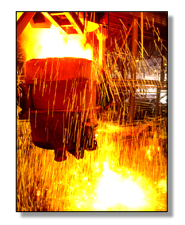 Assessment Finds Some Overlooked Savings
Assessment Finds Some Overlooked SavingsThe Nucor Nebraska Bar Mill will share the information from its assessment with the rest of the company's 19 steel mill divisions. The Nebraska plant prides itself on its energy efficient actions in a company that is dedicated to environmental stewardship. In 1997, the company built a new melt shop that consolidated five furnaces in two separate melt shops into a single shop with one furnace. "That really improved efficiency," recalled Wenzl. Extensive capital projects undertaken in 2003, including modernizing the rolling mills, kept Nucor's efficiency momentum moving.
Because of its focus on efficiency, the assessment didn't hold many surprises for Nucor's facility managers. "We were hoping the inspectors would find a ‘brass ring,’ — a big opportunity we had somehow missed," the project engineer acknowledged.
Most of the savings opportunities the energy experts identified were for natural gas, typical of industries that rely heavily on process heating, said Wenzl. Natural gas represents about one third of the plant's energy needs. Nebraska Public Power District supplies the electricity that provides the balance of the facility's power.
Wenzl noted the assessment highlighted some areas that hadn't received much attention. "Some other ideas will need new technologies to implement," he said. "We are looking forward to the final report."
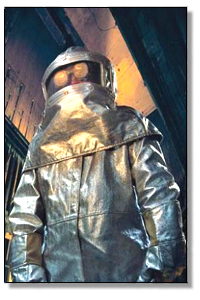 Energy Teams Make Efficiency Program Work
Energy Teams Make Efficiency Program WorkThe job of incorporating the Department of Energy report into Nucor's energy efficiency program will fall to three energy teams. Nucor formed the teams four years ago as part of an ongoing effort to control energy use. Each team previously had an area of expertise — electrical, natural gas or compressed air. Originally, teams were organized by expertise, but, "We found that teammates who worked in one area of the plant didn't necessarily have the familiarity to apply solutions to the others," said Wenzl.
Now, each of three plant areas — two roll mills and a melt-and-cast facility — has a team focused on its specific operations. "When a team has a thorough understanding of the area, we get better solutions," said Wenzl.
Teams meet every few weeks to identify potential projects for energy savings and discuss progress on active projects. Wenzl keeps a spreadsheet that lists projects by area, tasks associated with the projects, the teammate responsible, target date for completion and comments. Another spreadsheet shows completed projects throughout the plant with resulting savings.
Tracking moves the energy efficiency program forward, Wenzl explained, by keeping goals clear and quantifying what the teams have accomplished. Their progress shows in Nucor's overall energy use which has gone down 13.6 percent over the last five years. "Our projects have reduced electricity use by 13.4 percent and natural gas by 18.3 percent," he said.
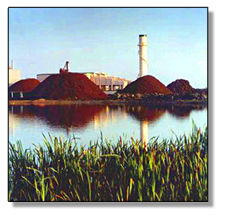 Saving Energy, Increasing Productivity
Saving Energy, Increasing Productivity
Making small adjustments to the manufacturing process has produced a lot of those savings, as it did with the walking beam billet furnace. The system moves 40-foot steel billets through the furnace in 10-inch steps. Reducing the step only one inch allowed engineers to lower the temperature set points and fit more billets into the furnace without overloading it. "That saved $145,000 annually in energy, and improved productivity," Wenzl pointed out.
Reducing the temperature for exit billets saved $150,000, and turning off vertical ladle heaters and reheat furnaces on days they were not in use saved Nucor more than $500,000 annually.
Wenzl noted that though many of these changes don't sound earthshaking, each took time to sell to operations. "Our teammates get a large portion of their income from a production bonus, so they are understandably wary about any measure that might affect productivity," he said.
Bonuses aside, he added, workers need to know that efficiency measures won't interfere with their jobs. "You can't just leave them hanging.
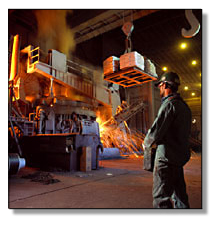 If you turn equipment off, you better be able to turn it on again."
If you turn equipment off, you better be able to turn it on again."Having the right equipment to monitor systems and document results helps to persuade production workers. "Once they see that a new strategy actually improves productivity, the line crews are the ones who push to take it to the next level."
Communication Necessary For Success
Getting teammates not only to accept but also to participate in energy saving programs takes communication. Nucor's energy team leaders meet with plant supervisors monthly to update them on projects, go over operation costs and safety measures and solicit ideas for new measures. "We are constantly seeking input from plant teammates," said Wenzl.
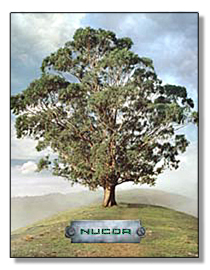 The company's quarterly intra-division newsletter provides another vehicle for communicating the importance of energy savings. Wenzl also writes a few paragraphs for the weekly plant e-mail on energy use, the energy teams' efforts and how teammates can help. "You can't miss a chance to let people know their actions make a difference," he said.
The company's quarterly intra-division newsletter provides another vehicle for communicating the importance of energy savings. Wenzl also writes a few paragraphs for the weekly plant e-mail on energy use, the energy teams' efforts and how teammates can help. "You can't miss a chance to let people know their actions make a difference," he said.This is particularly true on the electrical side, Wenzl observed, where many measures call for teammate support or cooperation. "Teammates need to understand why we set the thermostat on the cooling system a few degrees higher," he said. "If they know how much it costs to leave a torch or a little compressed air hose running, they turn it off. The savings may not be as big as the natural gas equipment, but it's not insignificant — it's money."
Corporate Culture Values Environment
It's also the environment at Nucor Corporation, which operates one of the largest recycling programs in the world. The recycled steel used for Nucor products consists of approximately 83 percent post-consumer scrap.
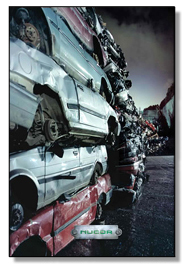 The remaining 17 percent typically consists of post industrial scrap from manufacturing processes for products made with steel.
The remaining 17 percent typically consists of post industrial scrap from manufacturing processes for products made with steel.Nucor received the first-place business and industry award from the Keep Nebraska Beautiful campaign in 2005 and 2006. In 2002, the division earned the Corporation President's Environmental Award and Environmental Leadership Excellence Award. "The company takes its responsibility to the environment very seriously. I get a lot of calls from other divisions asking about our program," Wenzl said, adding, "We may be a little ahead of the curve here in Nebraska."
The Department of Energy’s assessment could help Nucor Bar Mill keep its edge, but Wenzl plans on sharing. "The other divisions have already been calling, wanting to know when the report is coming out and what we learned," he said.
No matter how valuable the assessment proves to be, Nucor's energy teams know that saving energy is a journey, not a destination. Or, as Wenzl said, "Improving energy efficiency takes a daily effort."